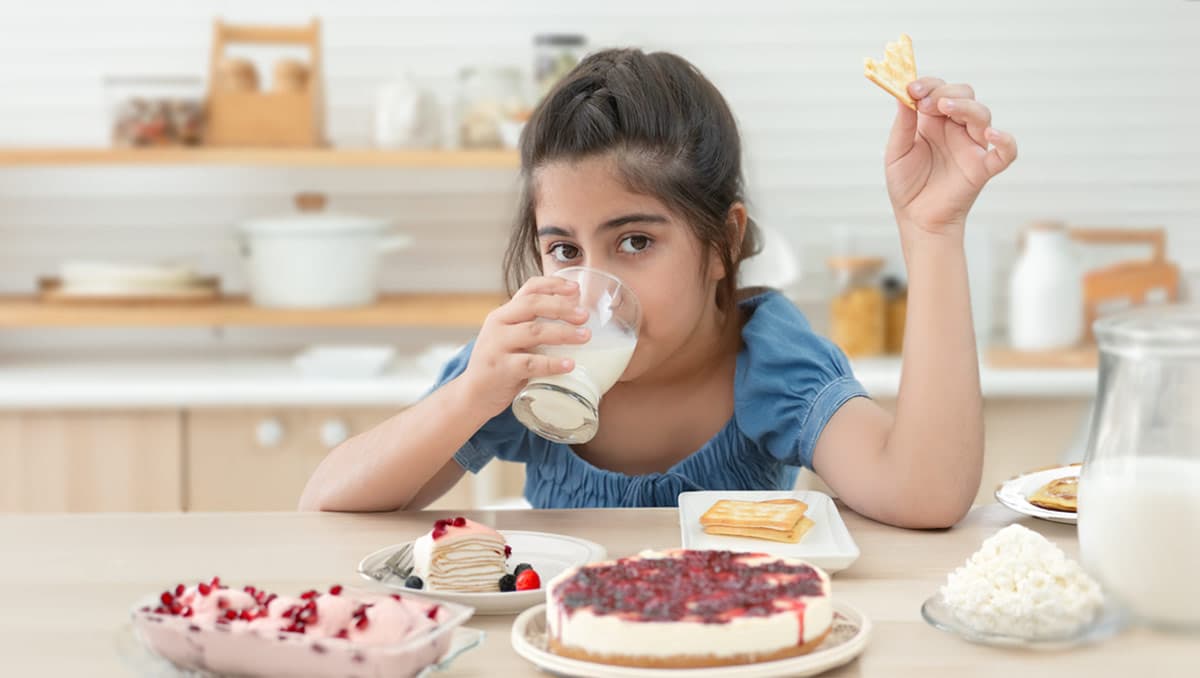
Seven Fun Reasons Why We Eat Dairy Products on Shavuot
by Jews for Jesus | May 23 2024
On Shavuot, it’s traditional to eat dairy foods such as cheesecake (an all-time favorite). While no one knows exactly how or when this custom began, there are numerous explanations in Jewish tradition for why we do so. Most of them remind us that Shavuot has traditionally been seen as the anniversary of God giving the Torah to Israel on Mount Sinai.
Here are seven of the reasons, in no particular order:1
1. God’s Word—the Torah—is compared to milk in Song of Songs 4:11: “Your lips drip nectar, my bride; honey and milk are under your tongue.” Since this book of the Bible is understood in Jewish tradition to describe the relationship between God and Israel, the “milk” is understood to refer to the Torah.2
2. Mount Sinai is also known as Har Gavnunim or “mountain of majestic peaks.” Gavnunim sounds like the Hebrew word for cheese, gevina, so what better time to eat cheese than the day we remember the giving of the Torah?
3. From Mount Sinai, the Jewish people journeyed to the promised land. Beginning with Exodus 3:8, this land is described in 20 different verses of the Old Testament as a “land of milk and honey.” Get the hint?
4. Every Hebrew letter also has a numerical value. The Hebrew word for “milk” is chalav, and the letters of that word add up to 40. Since Moses spent 40 days on Mount Sinai, let’s eat milk products!
5. At Mount Sinai, the Jewish people received instructions on keeping kosher. And according to Orthodox Jewish tradition, that even included all the later rabbinic instructions as well. Since there was not time enough to get everything ready for kosher meat preparation, everyone just ate dairy products instead.
6. At Mount Sinai, the Jewish people were considered as newborns who take in nourishment from milk. One rabbi remarks that “according to one opinion, we eat milky foods on Shavuot to inspire us with the mindset of the child.”3 It’s interesting that on one occasion, Jesus remarked, “Truly, I say to you, whoever does not receive the kingdom of God like a child shall not enter it.”4 But whether he said that on Shavuot or not, nobody knows.
7. Numbers 28:26 includes the phrase “new grain to the Lord at your Feast of Weeks.” In Hebrew, this is four words, and the initial letter of each word forms an acrostic meaning “from milk.” In this way, tradition connects Shavuot (the Feast of Weeks) with dairy products.
So break out the cheesecake, yogurt, milkshakes, and whatever else you can think of! Enjoy!
Endnotes
1.The material on this page can be gleaned from the following sources: Rabbi Michael Gotlieb, “Misguided Passion About Gibson’s Film,” Jewish Journal, April 16, 2006; Lesli Koppelman Ross, “Why Dairy on Shavuot?” My Jewish Learning, accessed May 16, 2024; Rabbi Shraga Simmons, “Why Dairy on Shavuot?” Aish, accessed May 13, 2024.
2. Compare 1 Peter 2:2, which in the NASB translation reads, “Like newborn babies, long for the pure milk of the word, so that by it you may grow in respect to salvation.”
3. Rabbi Yossi Goldman, “Why do Jews eat dairy on Shavuot?” the Jewish Chronicle, May 25, 2023.





